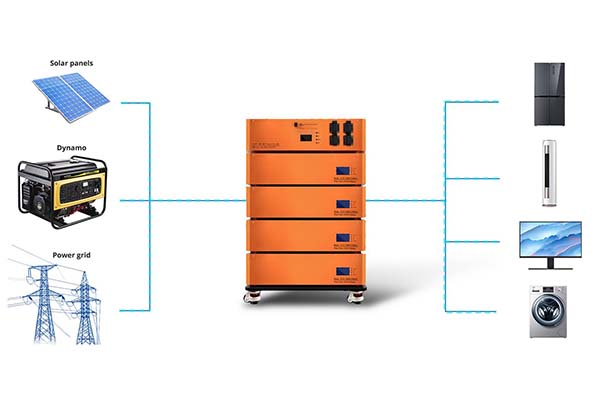In recent years, Home Energy Storage System, particularly whole-house battery backup Smart Storage Solutions, have gained significant attention as a reliable and sustainable alternative to traditional power sources. As homeowners seek greater control over their energy consumption and resilience against power outages, understanding the longevity and performance of Residential Energy Storage Systems becomes crucial. In this article, we will delve into the factors that influence the duration of whole-house battery backup, providing insights into how long these systems can sustain power supply during emergencies and everyday usage.
1. Capacity and Energy Usage:
The primary determinant of how long a whole-house Stackable Home Battery backup will last is its capacity, expressed in kilowatt-hours (kWh). This capacity represents the amount of energy the battery can store. To estimate the duration of backup power, it is essential to consider the energy requirements of your home during an outage. A higher capacity battery will provide a longer-lasting backup, ensuring critical appliances and systems remain operational.
2. Energy Demand and Load Management:
The duration of a whole-house battery backup also depends on the energy demand during an outage. Consider the appliances and systems you deem essential during a power outage, such as refrigeration, lighting, heating or cooling, and medical equipment. Efficient load management, including prioritizing energy usage and employing energy-saving practices, can significantly prolong the backup power duration. By reducing non-essential energy consumption, homeowners can optimize the use of their battery backup and extend its lifespan.

3. Depth of Discharge:
The depth of discharge (DoD) refers to the amount of energy that is drained from the battery before recharging. It is crucial to be aware that discharging the battery to its maximum capacity may reduce its lifespan. Most whole-house battery backup systems are designed to operate within a specific DoD range, typically between 50% and 80%. Staying within this range helps maximize the battery's cycle life and ensures a reliable backup power supply over an extended period.
4. Battery Chemistry:
The type of battery chemistry used in a whole-house battery backup system significantly influences its lifespan. Lithium-ion (Li-ion) batteries are the most common choice due to their high energy density, efficiency, and long cycle life. Li-ion batteries can endure several thousand charge-discharge cycles, lasting anywhere from 10 to 20 years, depending on usage patterns and maintenance. Other battery chemistries, such as lead-acid or nickel-based batteries, may have shorter lifespans and require more frequent replacements, affecting the overall longevity of the backup system.
5. Environmental Conditions and Maintenance:
The operating environment and maintenance practices also play a vital role in determining the lifespan of a whole-house battery backup. Extreme temperatures, both high and low, can impact the battery's performance and longevity. It is important to install the battery in a controlled environment and follow manufacturer guidelines regarding temperature ranges. Regular maintenance, including firmware updates and periodic checks, can help identify and address any issues, ensuring optimal performance and longevity of the battery backup system.
6. System Scalability and Future Expansion:
When investing in a whole-house battery backup, it is essential to consider the scalability and potential for future expansion. As energy needs change over time, homeowners may wish to increase their battery capacity to accommodate additional appliances or systems. Understanding the scalability options offered by the chosen battery backup system can provide flexibility and prolong the system's useful life.
Conclusion:
Whole-house battery backup systems offer homeowners a reliable and sustainable solution to address power outages and optimize energy consumption. The duration of backup power depends on various factors, including battery capacity, energy demand, load management practices, depth of discharge, battery chemistry, environmental conditions, and maintenance. By considering these factors and making informed decisions, homeowners can ensure their whole-house battery backup systems provide a long-lasting and dependable power supply during emergencies and everyday usage. As technology advances and battery technologies evolve, the future looks promising for even more efficient and durable home energy storage solutions.



